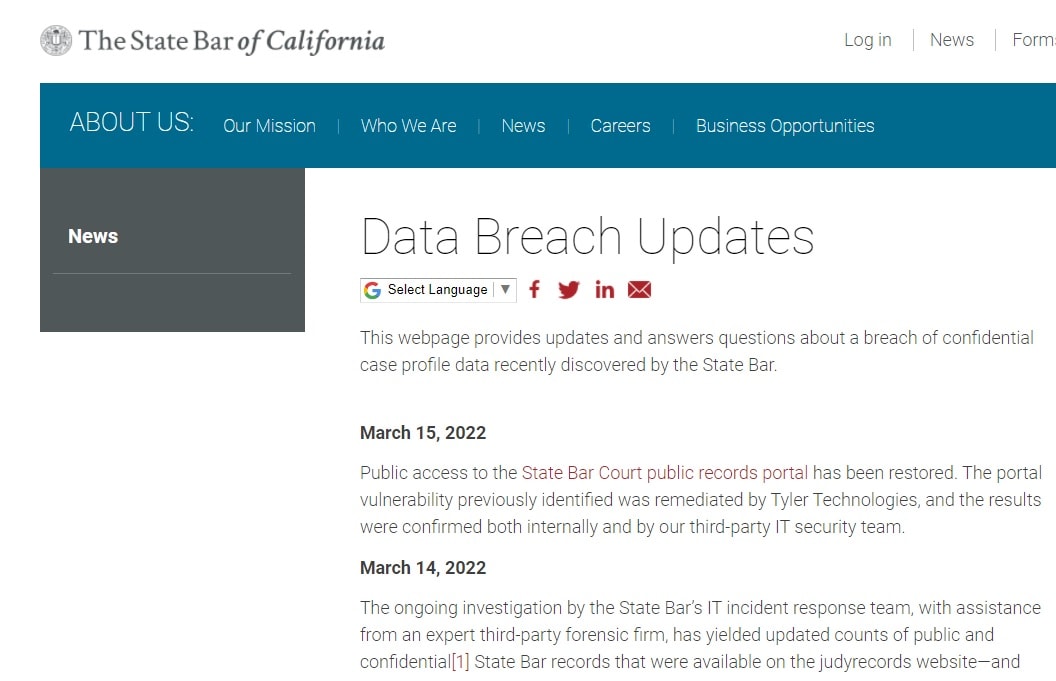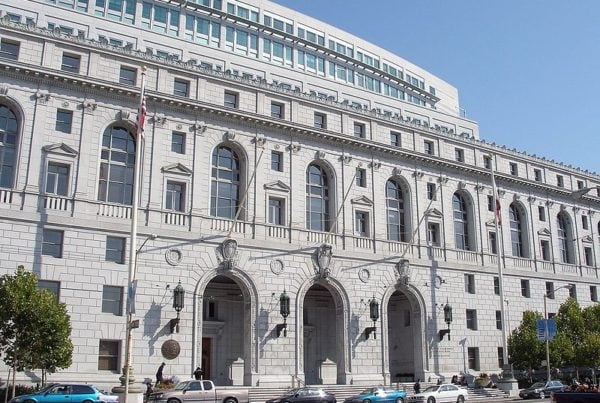The California State Bar’s case access portal did not perform access control checks before returning confidential case data, resulting in the disclosure of confidential records, the administrator of the open-records site at the center of February’s data leak wrote.
Tyler Technologies, which manages the portal, corrected the vulnerability, the State Bar said March 15, when they announced the public records portal had been restored.
judyrecords published limited information about 322,000 State Bar disciplinary cases from Oct. 15 to Feb. 26, the State Bar said. Of those, only 1,034 have been viewed. The Bar announced the breach Feb. 24.
The company also provides technology to San








